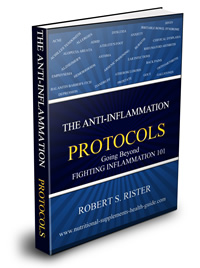The Surprising Relationship between Vitamin D and Depression
TweetDepression in the Sunshine State
You might think that people who live in Florida ought to be happy during the winter. For Anne, this was not to be.Beginning in late November, Tampa resident Anne just could not get into the holiday spirit. By the end of December, she was wanting to sleep all the time. Fortunately, she went to a nutritionally savvy doctor in January who quickly ordered a blood test that found that Anne had low levels of the storage form of vitamin D, 25 (OH) vitamin D, also known as 25-hydroxy vitamin D.
Certain aspects of Anne's personal and medical history were strong hints that she might be deficient in vitamin D. Anne lived in Florida, but she worked a night shift and was a single parent to two small children, so she had little time for outdoor activities. She was of African-American descent, and her skin tones allowed little production of vitamin D even on those rare opportunities she had to enjoy the sunshine. And she had various aches and pains that just did not track to any identifiable cause.
When the doctor told Anne to take 5,000 IU (625 micrograms) of vitamin D a day, her unusual sleepiness went way. Anne was able to resume the demanding duties of being a wage-earning single mother. And her aches and pains went away, too. A researcher named Dr. D. E. McCarty of the Louisiana State University Health Sciences Center has an explanation of how this works.
How Vitamin D Can Lift Depression
Dr. McCarty believes that vitamin D changes the way the body makes an infection-fighting hormone known as TNF-alpha. This substance causes irritation and inflammation that kills infections and cancer cells. Usually the clears out any excess during sleep.When vitamin D is deficient, however, the body needs a longer rest period to get rid of the inflammatory hormone. Vitamin deficiency not only leads to more unidentifiable aches and pains, it also makes deficient people sleepier and sleepier.
Two Ways to Use Vitamin D to Treat Depression
One way to use vitamin D to treat depression is to provide the UV light that enables the skin to make the vitamin. That's the approach used by a research team in the Netherlands, where winters tend to be especially dark and gloomy. In one study, elderly people who suffered depression and memory loss were given an opportunity to sit under a sun lamp for an hour every morning. The artificial light, which triggered production of vitamin D, was associated with a marked recovery from depression.For artificial light to work for this purpose, it has to be in the blue spectrum, and it has to be bright (7500 lux). Blue light at night, by the way, will keep you awake.
Some of the same researchers also did research to find out whether it was the absence of sunlight or a deficiency of vitamin D that caused depression in older adults. What they found was that low vitamin D levels, combined with the high parathyroid hormone, predicted depression.
When the body is running low on vitamin D, the parathyroid glands may work overtime to try to release the remaining supply. This suggests that if you can't find time to go out in the sun, and you can't find time to sit under a sun lamp, then you will be able to treat your depression with the help of vitamin D.
If you are lucky enough to be able to sun on the beach in Florida or some other warm location during the winter, maybe you won't suffer depression in the first place. But if you get the winter blues and don't feel the underlying issues are psychological, try vitamin D. For just pennies a day, you can take the 5,000 IU daily dose that may be what you need to lift seasonal depression.
Selected References:
Lieverse R, Van Someren EJ, Nielen MM, Uitdehaag BM, Smit JH, Hoogendijk WJ. Bright light treatment in elderly patients with nonseasonal major depressive disorder: a randomized placebo-controlled trial. Arch Gen Psychiatry. 2011 Jan;68(1):61-70.
McCarty DE. Resolution of hypersomnia following identification and treatment of vitamin d deficiency. J Clin Sleep Med. 2010 Dec 15;6(6):605-8.
Return to Vitamin D Benefits
Return to Nutritional Supplements Home Page
The Anti-Inflammation Protocols

A LIFE FREE OF PAIN AND INFLAMMATION
Discover how simple changes in diet and lifestyle stop inflammation
Over 200 pages of potentially life-changing information
Only $9


 contains approximately one thousand, two hundred and seventy five times LESS lead than 1 tablet of the Vitamin Shoppe product.
contains approximately one thousand, two hundred and seventy five times LESS lead than 1 tablet of the Vitamin Shoppe product.